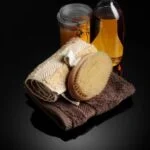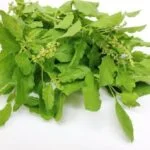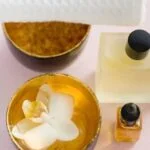Tea tree essential oil, extracted from the leaves of the Melaleuca alternifolia plant, has gained significant popularity in recent years for its versatile uses. While commonly known for its benefits in aromatherapy, tea tree oil offers a wide range of therapeutic properties that extend beyond just relaxation and stress relief. This article delves into the question: Is Tea Tree Essential Oil Only for Aromatherapy?
Originating from Australia, tea tree oil has been used for centuries by Indigenous Australians for its medicinal properties. Traditionally, it was applied topically to treat skin conditions and infections. Today, tea tree oil is renowned for its antimicrobial, antifungal, and anti-inflammatory properties, making it a staple in many households for natural remedies.
In addition to its traditional uses and therapeutic properties, tea tree oil is also widely utilized in aromatherapy practices. The soothing aroma of tea tree oil can promote mental clarity, relaxation, and overall well-being. However, the benefits of this essential oil extend far beyond just its aromatic qualities. Let us explore the numerous ways in which tea tree oil can be incorporated into daily routines for skincare, haircare, and more.
History of Tea Tree Oil
Tea tree oil, also known as melaleuca oil, has a rich history that dates back centuries. This essential oil is derived from the leaves of the Melaleuca alternifolia plant, native to Australia. The indigenous people of this region, particularly the Aboriginals, have been using tea tree oil for its medicinal properties for generations. They would crush the leaves and apply them topically to treat various skin conditions, wounds, and infections.
The use of tea tree oil gained popularity in the western world in the 1920s when research confirmed its potent antimicrobial properties. During World War II, tea tree oil was included in soldiers’ first aid kits for its ability to treat cuts, wounds, and infections effectively. Since then, tea tree oil has become a staple in many households worldwide for its therapeutic benefits.
Traditional Uses of Tea Tree Oil
In addition to its modern applications, tea tree oil has been traditionally used by indigenous Australians for a variety of purposes. It was commonly used as an antiseptic for treating wounds and infections. The leaves were also boiled to create an infusion that was used to treat sore throats and coughs. Additionally, tea tree oil was used to repel insects and pests due to its strong aroma.
Origin of Tea Tree Oil
The term “tea tree” originated from Captain James Cook’s voyage to Australia in the 18th century when he observed the indigenous people brewing a fragrant tea made from the leaves of Melaleuca plants. While these teas were not commonly consumed due to their strong taste, they led to the naming of Melaleuca plants as “tea trees.” Today, tea tree oil is widely recognized for its therapeutic properties and is commonly used in aromatherapy, skincare products, and natural remedies.
Composition and Properties
Tea tree essential oil, also known as melaleuca oil, has garnered immense popularity for its versatile uses and numerous benefits. While commonly associated with aromatherapy due to its pleasant fragrance and therapeutic properties, tea tree oil extends far beyond just being an aromatic delight. This essential oil is extracted from the leaves of the Melaleuca alternifolia plant native to Australia.
The chemical composition of tea tree oil is a complex blend of over 100 different compounds, with terpinen-4-ol being the main active component responsible for its antimicrobial, antifungal, and anti-inflammatory properties. These properties make tea tree oil a powerful natural remedy for various skin conditions like acne, eczema, and fungal infections. Its anti-inflammatory effects can also help reduce redness and swelling.
Apart from its renowned benefits in aromatherapy, tea tree essential oil is a popular ingredient in skincare products due to its ability to combat bacteria and soothe irritated skin. It can be found in cleansers, moisturizers, and spot treatments designed to target blemishes effectively.
In haircare, tea tree oil is valued for its ability to promote a healthy scalp by addressing issues such as dandruff or itchiness. The versatility of tea tree oil makes it a valuable addition to anyone’s self-care routine.
| Tea Tree Oil Properties | Benefits |
|---|---|
| Antimicrobial | Combat bacteria on the skin |
| Antifungal | Helps treat fungal infections like athlete’s foot |
| Anti-inflammatory | Reduces redness and inflammation on the skin |
Aromatherapy Benefits of Tea Tree Oil
Tea tree essential oil, renowned for its versatility and numerous benefits, is often associated with aromatherapy due to its soothing and calming properties. While it is commonly used in diffusers to create a relaxing atmosphere and promote mental well-being, tea tree oil offers more than just aromatic benefits. Here are some ways in which tea tree essential oil can be effectively utilized in aromatherapy:
- Diffusion: One of the most popular methods of using tea tree oil in aromatherapy is through diffusion. Simply add a few drops of tea tree essential oil to a diffuser filled with water and let the invigorating scent permeate the air. This method not only helps in creating a refreshed ambiance but also aids in improving respiratory health by clearing congestion.
- Inhalation: Another way to enjoy the benefits of tea tree essential oil in aromatherapy is through inhalation. Add a drop or two of tea tree oil to a bowl of hot water and inhale the steam by covering your head with a towel. This method is excellent for relieving sinus congestion, coughs, and cold symptoms.
- Topical Application: While topical application of tea tree essential oil requires caution due to its potency, when properly diluted with carrier oils such as coconut or almond oil, it can be used for massages or added to bathwater for relaxation. The anti-inflammatory properties of tea tree oil make it an effective remedy for sore muscles and joint pains.
Overall, while tea tree essential oil is commonly associated with aromatherapy due to its pleasing fragrance and mood-enhancing qualities, it is important to note that its benefits extend beyond just scent therapy. Incorporating this versatile essential oil into your daily routine can provide an array of health and wellness advantages beyond what meets the nose.
Other Uses of Tea Tree Oil
Tea Tree Essential Oil is not just limited to aromatherapy, it has a wide range of uses in skincare and hair care routines. Here are some of the ways you can incorporate tea tree oil into your daily beauty regimen:
- Skincare Benefits: Tea tree oil is known for its antibacterial and anti-inflammatory properties, making it an excellent natural remedy for acne-prone skin. It can help reduce redness, swelling, and inflammation associated with breakouts. Simply dilute a few drops of tea tree oil with a carrier oil like coconut or jojoba oil and apply it to the affected areas using a cotton ball.
- Haircare Benefits: Tea tree oil is also beneficial for maintaining a healthy scalp and promoting hair growth. It can help soothe itchiness, reduce dandruff, and unclog hair follicles. Mix a few drops of tea tree oil with your favorite shampoo or conditioner, or create a DIY scalp treatment by combining it with a carrier oil and massaging it into your scalp before washing your hair.
When using tea tree essential oil for skincare or hair care purposes, always remember to do a patch test first to check for any adverse reactions. It is important to dilute the essential oil properly as its undiluted form may cause skin irritation. With regular use, you may start to see improvements in your skin’s overall health and appearance.
Tea Tree Essential Oil truly offers more than just aromatherapy benefits. Its versatile nature makes it a valuable addition to any beauty routine, providing natural solutions for common skin and hair concerns. So next time you reach for your bottle of tea tree oil, remember that its benefits extend beyond just creating a relaxing atmosphere through aromatherapy.
Safety Precautions
Tea tree essential oil is widely known for its therapeutic benefits, particularly in the field of aromatherapy. However, it is important to note that tea tree essential oil is not only limited to aromatherapy; it has a variety of other practical uses as well. While aromatherapy utilizes the aromatic properties of tea tree oil for mental health and relaxation purposes, this versatile essential oil also offers numerous skin care and hair care benefits.
One of the key reasons why tea tree essential oil is highly regarded in the realm of skincare is due to its potent antimicrobial and anti-inflammatory properties. This makes it an effective natural remedy for various skin issues such as acne, eczema, and fungal infections. Tea tree essential oil is often used topically in diluted form to treat blemishes, soothe irritations, and promote overall skin health.
When using tea tree essential oil for skincare or haircare purposes, it is crucial to observe safety precautions to prevent any adverse reactions. It should always be diluted with a carrier oil before being applied to the skin or scalp to avoid irritation or sensitivity.
Additionally, conducting a patch test prior to using tea tree oil extensively can help identify any potential allergic reactions. Overall, when used properly and with caution, tea tree essential oil can be a valuable addition to your daily beauty and wellness regimen.
| Benefits | Uses |
|---|---|
| Antimicrobial properties | Skin care |
| Anti-inflammatory properties | Hair care |
Research and Studies
Tea tree essential oil has long been popular for its various medicinal and therapeutic properties. While often associated with aromatherapy, this versatile oil has also been the subject of numerous research studies confirming its effectiveness in treating a wide range of conditions. From its antimicrobial and antifungal properties to its ability to reduce inflammation, tea tree oil is truly a powerhouse in natural medicine.
Scientific Evidence
Over the years, multiple studies have been conducted to explore the benefits of tea tree essential oil. One study published in the Journal of Antimicrobial Chemotherapy found that tea tree oil demonstrated significant antimicrobial activity against a range of bacteria and fungi. This research supports the traditional use of tea tree oil for wound healing and skin infections. Another study in Clinical Microbiology Reviews highlighted the effectiveness of tea tree oil in combating acne, thanks to its powerful antibacterial properties.
Effectiveness for Various Conditions
Research on tea tree oil has extended beyond skincare, revealing its potential benefits for other health issues as well. A study published in the Australasian Journal of Dermatology investigated the use of tea tree oil for treating athlete’s foot and found it to be as effective as conventional antifungal treatments. Additionally, research published in Phytotherapy Research explored the anti-inflammatory properties of tea tree oil, suggesting its potential use in managing inflammatory skin conditions like eczema and psoriasis.
With a growing body of scientific evidence backing up its therapeutic properties, it is clear that tea tree essential oil is not limited to just aromatherapy. Its wide range of uses make it a valuable addition to any natural medicine cabinet, offering holistic solutions for various health concerns. By incorporating tea tree oil into your daily routine, whether through topical application or inhalation, you can experience firsthand the many benefits this potent essential oil has to offer.
Conclusion
In conclusion, it is evident that tea tree essential oil is not only limited to aromatherapy. While its use in aromatherapy for mental health benefits and relaxation is well-known, tea tree oil also offers a wide range of skincare and haircare benefits. Its antimicrobial, antifungal, and anti-inflammatory properties make it a versatile oil that can be incorporated into daily routines for various purposes.
Furthermore, the safety precautions outlined in this article emphasize the importance of using tea tree oil responsibly to avoid any potential side effects or allergic reactions. By following these guidelines, individuals can enjoy the numerous benefits of tea tree oil without any risks.
Overall, the research and studies discussed in this article highlight the effectiveness of tea tree oil for various conditions, further confirming its value beyond just being used in aromatherapy. Whether it’s treating skin issues, promoting hair growth, or boosting overall well-being, tea tree oil proves to be a valuable addition to anyone’s collection of essential oils.
So, next time you reach for your bottle of tea tree essential oil, remember that its uses extend far beyond just aromatherapy.
Frequently Asked Questions
What Is the Difference Between Tea Tree Oil and Essential Oil?
Tea tree oil is a specific type of essential oil that comes from the leaves of the tea tree plant. While all tea tree oil is an essential oil, not all essential oils are tea tree oil. Essential oils are concentrated liquids that contain volatile aromatic compounds from plants.
What Is Diffusing Tea Tree Essential Oil Good For?
Diffusing tea tree essential oil can be beneficial for purifying the air, promoting relaxation, and even helping to alleviate respiratory issues such as congestion or coughing. The antimicrobial properties of tea tree oil make it a popular choice for diffusing to help cleanse and freshen the air in your home.
Can You Put Tea Tree Oil Directly on Your Skin?
It is generally not recommended to apply tea tree oil directly onto your skin without diluting it with a carrier oil first. Tea tree oil is potent and can cause irritation or allergic reactions if used undiluted on the skin.
It is always best to perform a patch test before using tea tree oil topically to ensure that you do not have any adverse reactions.

Are you looking for a natural way to improve your health and wellbeing?
If so, aromatherapy may be the answer for you.





